Teams, tales and tips – a guide to the local game
Once a powerful football hub, Austria’s capital is now a stage for showpiece fixtures and home to Europe’s most enduring city derby, between Rapid and Austria. Games between them are still occasionally played at the national Ernst-Happel-Stadion, revamped to host Euro 2008, including the final.
Over the last decade, the two Viennese giants have had to play second fiddle to Salzburg, winners of every title since 2013. For all that, Rapid often make the group stage of the lesser Eurotournaments, Austria, too. These are still big clubs.
Provincial teams, only admitted to the main league just before the war, didn’t make an impact until the 1970s. Until then, the game revolved around Vienna, where Europe’s first international took place, at the WAC pitch in the Prater Park between Austria and Hungary in 1902.
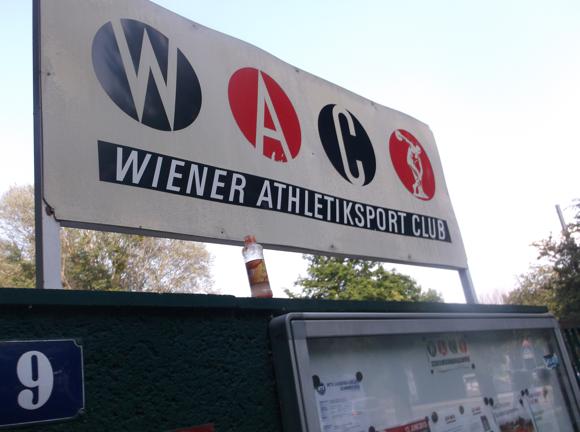


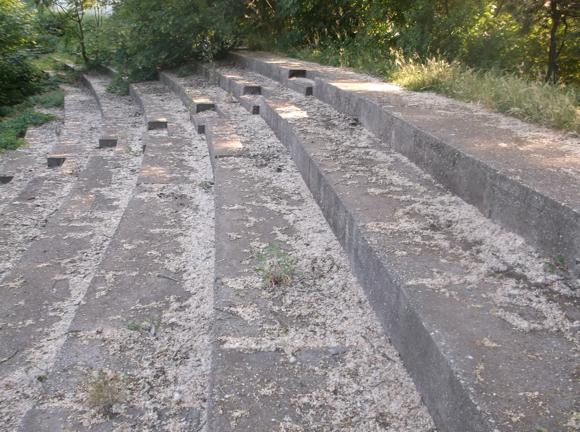
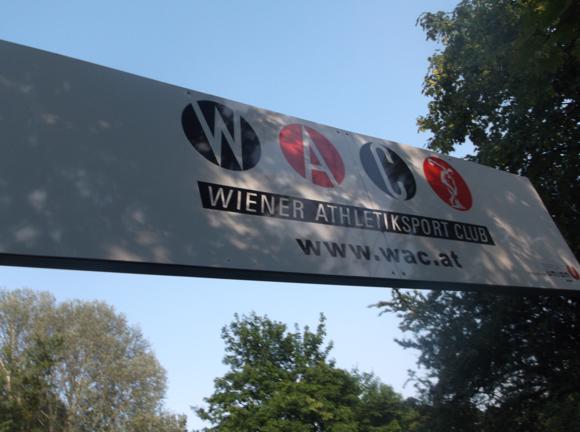
The field still exists, as do Wiener Athletiksport Club, but mainly for hockey and tennis. The Prater today also houses the national Ernst-Happel-Stadion, still referred to by many as the Prater.
Equally historic are Wiener Sport-Club, founded in 1883. The football club were Austrian champions in the late 1950s, beating Juventus 7-0 and holding the great Real Madrid to 0-0 in the European Cup of 1958-59.
Today, WSC compete in the third-flight Regionalliga Ost. Their ground, at Hernalser Hauptstraße 214, is close to Hernals station on the S43 line from Schottentor or S45 Schnellbahn from Handelskai. Nearby is Schweiger’s Bierbeisl.
Rapid and Austria originated from western Hietzing. Austria drifted to Favoriten, in southern district 10, while Rapid stayed in the west, over in Hütteldorf. There, Rapid have rebuilt their former Gerhard-Hanappi-Stadion, opening the Allianz Stadion on the same site before the 2016-17 season.
Austria rebuilt their own Franz-Horr-Stadion, Die Veilchen (‘The Violets’) playing home games at the Prater during the interim.
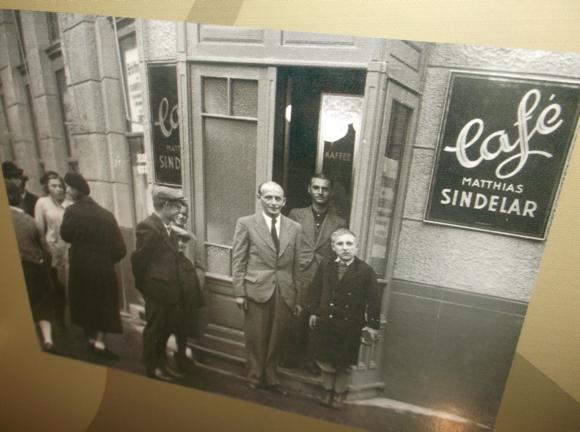


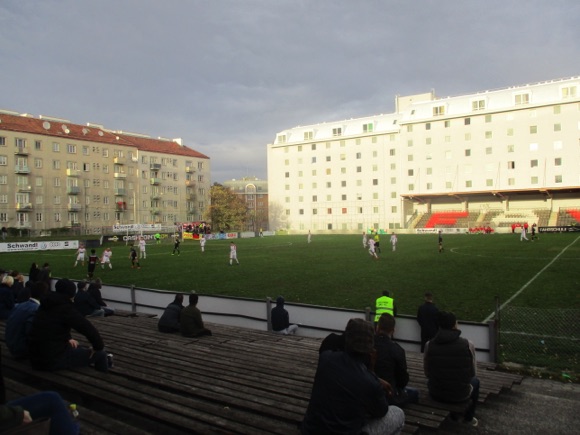
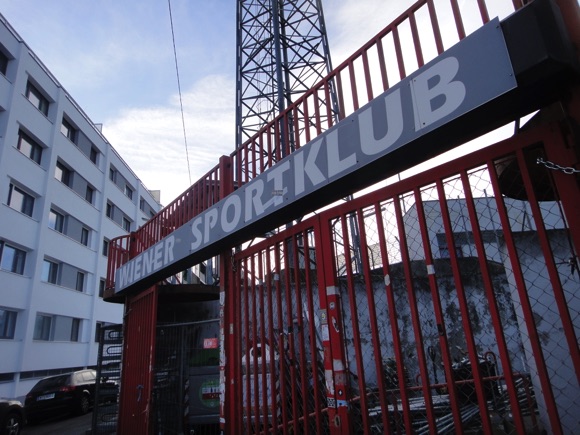
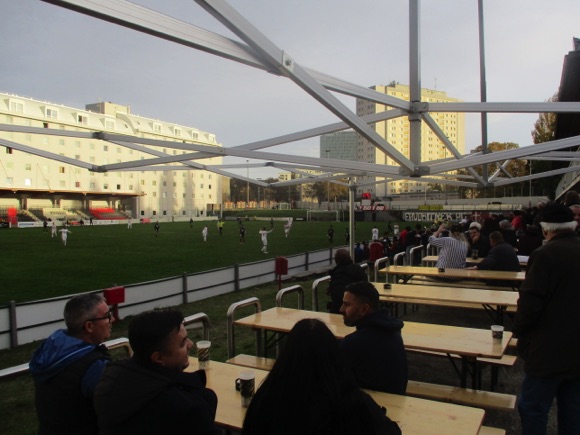
Favoriten is where Austria’s most celebrated player, Matthias Sindelar, grew up, among the many Czech families who had settled there. Shortly before his death in 1939, he also bought a café in Favoriten. Austria moved into the area in 1973, taking over the former home of SK Slovan Wien, the Franz-Horr currently being rebuilt.
Apart from Favoritner AC, a populist lower-league side at FavAC-Platz on Kennergasse, with its wonderful pitchside bar, today Favoriten also contains Vienna’s main train station, Wien Hauptbahnhof, at its northern tip.
You’ll find Sindelar’s grave in the city’s main cemetery, the Zentralfriedhof, and right in town off the main shopping street of Kärntner Straße, a plaque at Annagasse 3 marking the house where he died in suspicious circumstances shortly before World War II.
The first game between Rapid and Austria was in 1911 but the term ‘Vienna Derby’ could then also have referred to matches with First Vienna and Admira, in the north of town. The former are still based in Döbling, playing second-division football at the modest Hohe Warte that was once Austria’s national stadium.


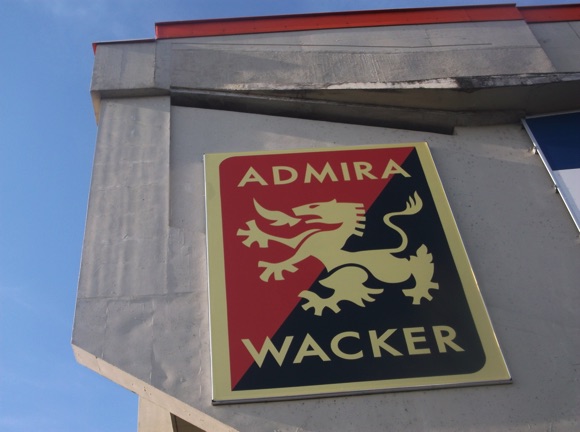
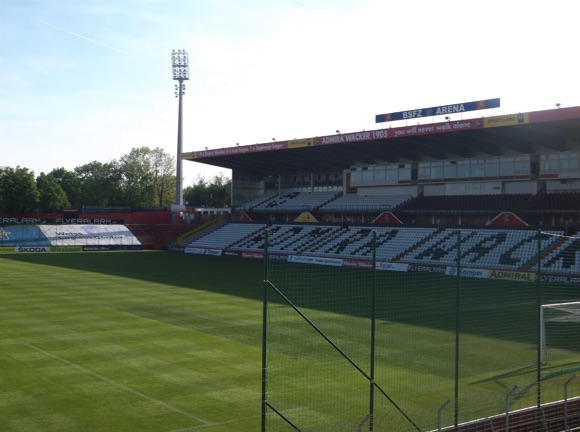
Also in the 2. Liga, FAC Wien are another of the capital’s venerable clubs. Based at the Leopold-Stroh-Stadion in Floridsdorf, FAC (Floridsdorfer Athletik-Sport Club) won the league back in 1918 but had long since fallen into relatively obscurity.
Merging with PSV Team für Wien in 2007, the club climbed back up. A play-off win in 2014 over Austria Salzburg – the original club formed by followers after Red Bull’s takeover – allowed FAC to return to the professional second flight for the first time in 47 years.
Admira, now Admira Wacker Mödling, dominated the Austrian game in its pomp, in the early 1930s. The forward partnership of Toni Schall and Adi Vogl was essential to the Wunderteam that deserved more than fourth place at the 1934 World Cup. Under Hugo Meisl, the Austrian game he managed and administrated developed with short passing and masterful ball control.
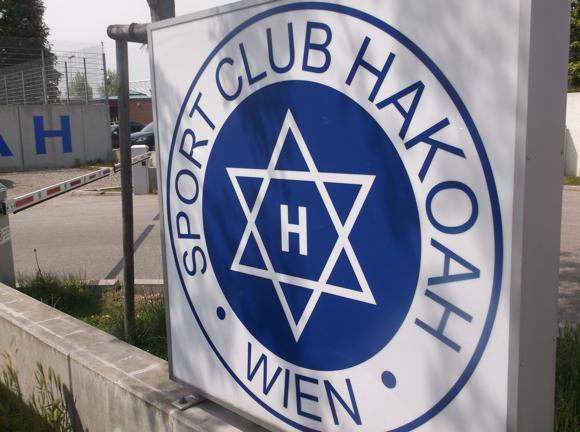
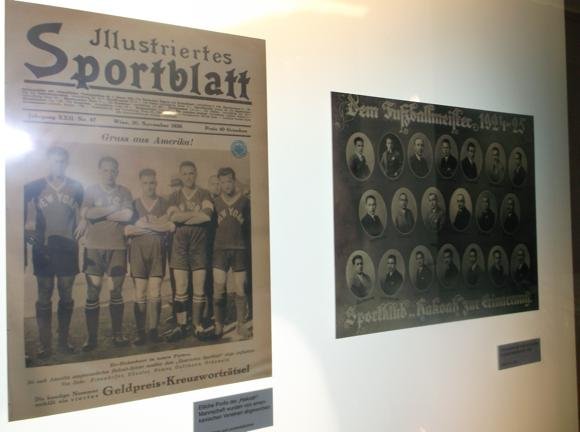
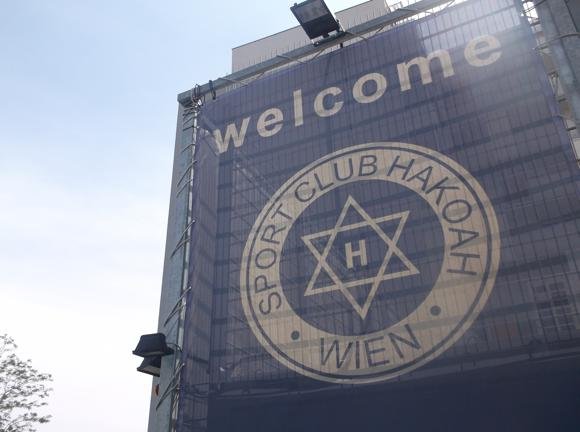
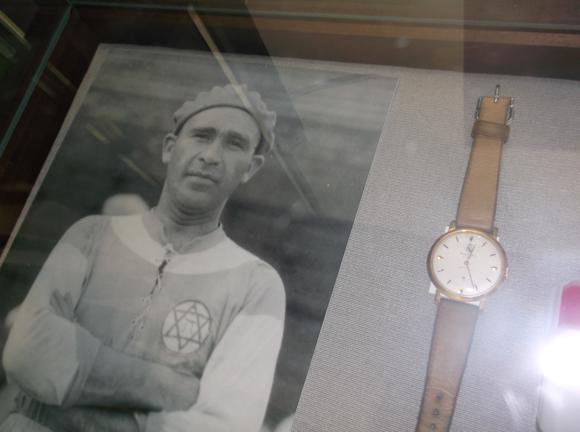
Admira merged with SC Wacker in 1971 and VfB Mödling in 1997, moving from Floridsdorf to Maria Enzersdorf-Südstadt, south of town. There the Trenkwalder-Arena, named after wealthy chairman who saved the club in 2008, is by the Maria Enzersdorf-Südstadt stop on the Badner Bahn line from Philadelphiasbrücke, 16mins away. This was where Wim Wenders shot cult film The Goalkeeper’s Fear of the Penalty.
Another old Vienna name from the past, Hakoah, has been revived – but not in football form. Crowned champions of a very strong league in 1925, Hakoah were formed of Jewish players, including Béla Guttmann, the globe-trotting manager who nurtured Eusébio into a European Cup winner in the early 1960s.
Banned in 1938, their Sportplatz ground usurped, Hakoah was reformed as a sports club after the war. In 2008, the Hakoah sports centre was opened, near the Prater Park and Danube Marina, comprising a pool, tennis courts and a modest archive with photos on display of the pre-war days.
A youth football team, Maccabi Wien, are in the Stadtliga division, based at the Police Sports Ground on Dampfschiffhaufen over the water from the Prater.
Getting Around
Arriving in town, local transport and timings



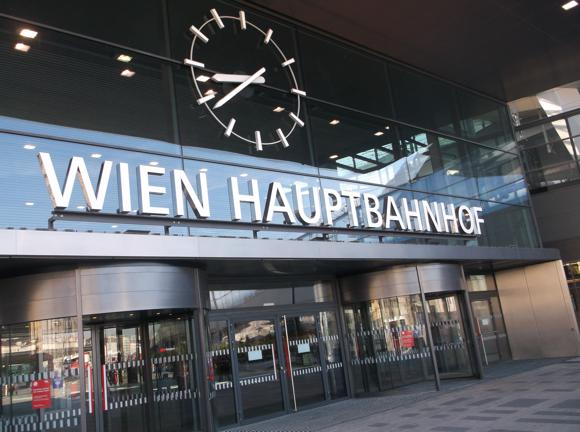
Vienna’s Schwechat Airport is 18km (11 miles) south-east of the city centre, linked by CAT airport train (€15, €25 return, every 30mins, 16min journey time), S-Bahn line 7 (€4.30, 25mins) to central Wien Mitte station and train to the main station, Wien Hauptbahnhof (€4.30, 15mins).
City transport consists of U- and S-Bahn lines, trams and buses. A single ticket is €2.40, a 24-hour day pass €8, a Day-Ticket valid until 1am the next day, €5.80, all available from machines at stops and stations.
A taxi (+43 1 81 30 100) to town should cost €36, €30 if booked online.
With the opening of Wien Hauptbahnhof, Westbahnhof on the U3/U6 lines has lost its prominence but remains an international hub. The main bus station is by Erdberg on line U3.
Where to Drink
The best pubs and bars for football fans


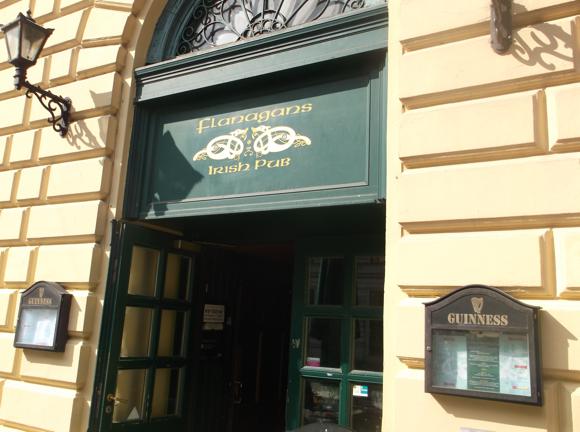

Vienna has two bar hubs: the tourist-focused Bermuda Triangle near Schwedenplatz; and, attracting an older, savvier clientele, beneath the rail tracks around Josefstädter Straße station. There’s also a summer scene on the waterfront near Schottenring.
The somewhat dated Bermuda Triangle has one recommendable bar in its midst, the Krah-Krah, with a TV screen and decent selection of beers. Happy Hour is currently 3.30pm-5.30pm weekdays. Sally’s on Judengasse takes a stab at pub authenticity and serves until 4am.
Elsewhere, pubs abound: in the south-east of the city centre, Flanagans opened in 1996, transported from a village in County Cork and reassembled here. Opposite, 1516 combines house-brewed beers with football-watching – note the scarves from far and wide.
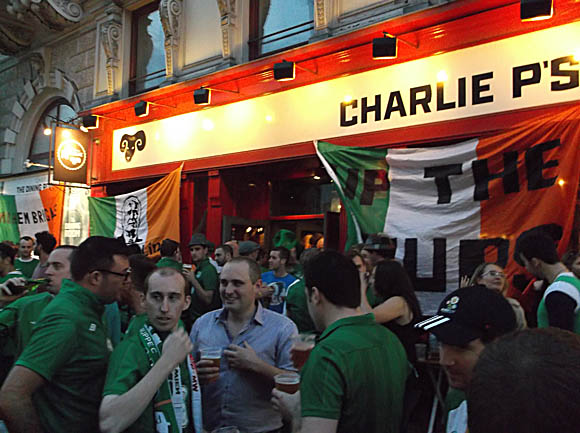
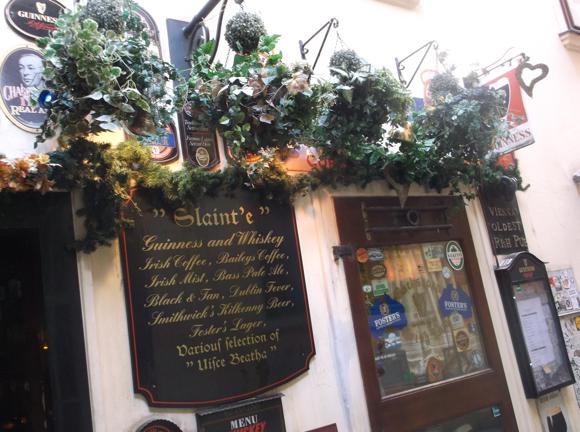



Setting the craft-beer trend, close to the student quarter, Brian Patton’s excellent Charlie P’s also offers notch-above pub food. Admirable Austrian football magazine Ballesterer seems to like it too, putting on special events here. The Irish invasion of 2013 held up traffic right across the street.
Right in the city centre, in a cul-de-sac just off Naglergasse, the intimate Bockshorn was the first and remains the best Irish pub, open from 4pm. No TV, no WiFi, mobiles discouraged – you’re here to sup, sip and chat, encouraged by a well chosen soundtrack and draught Guinness, Stiegl and Starobrno.
Near Karlsplatz, cavern-like Pointers on narrow Resselgasse allows you to watch the match with mainly Austrians rather than expats and does damn good burgers, too. A short hop away, Johnny’s and the Four Bells do pub-like jobs, show matches and keep late hours.





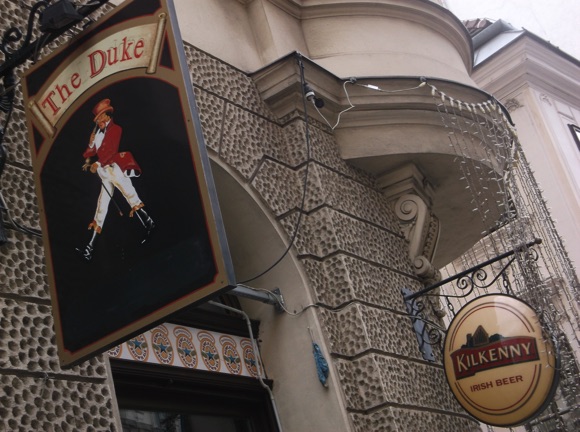
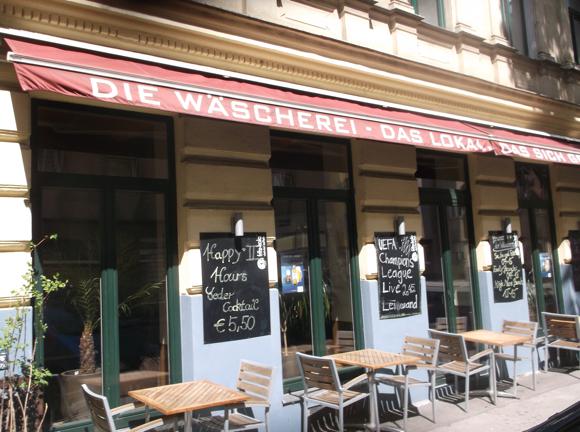

If you’re visiting the Opera House, then Crossfield’s is a nearby Aussie pub that goes big on TV sports and offers in-house beer alongside Foster’s and antipodean grilled treats, including grasshopper.
Others pubs are dotted on and off Burggasse in the 7th district, including The Duke, backbone, The Lizard and Shebeen, with varying degrees of football focus.
Further up Josefstädter Straße, the Café Hummel is a somewhat upscale reconfiguration of a classic Viennese bar/restaurant, with a popular separate side room for football watching. Nearby on Albertgasse, Die Wäscherei is part-bar (with TV sports), part-restaurant and former launderette.
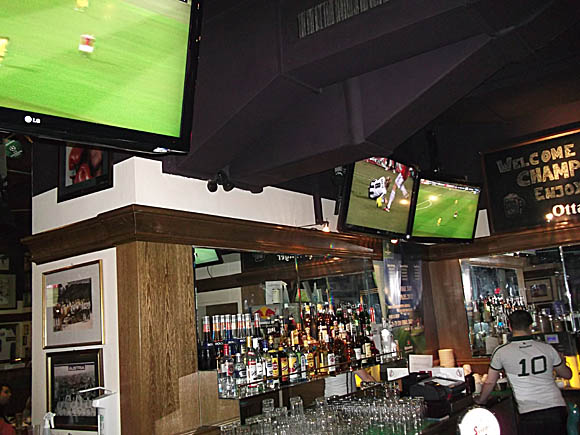

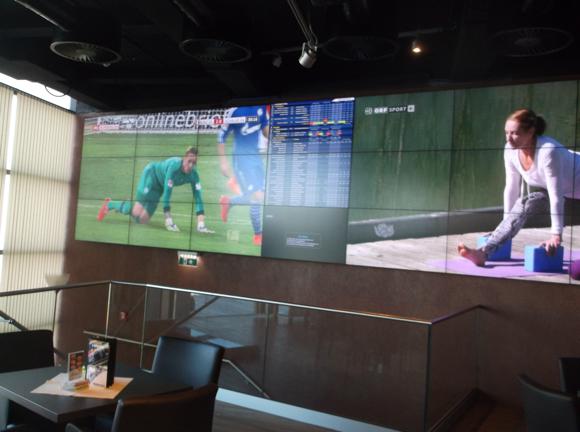




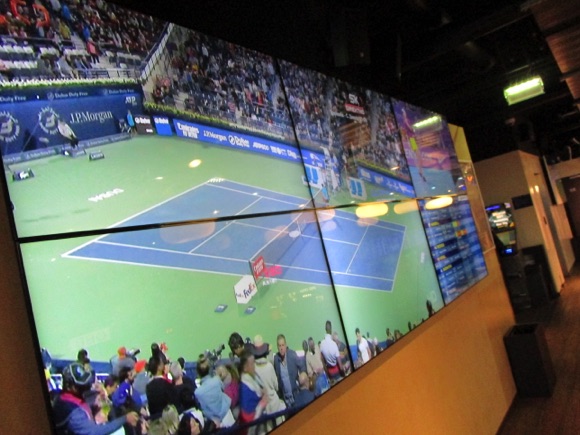
In the hub of live-music spots right under the U-Bahn rails between the stations of Josefstädter Straße Thaliastraße, Chelsea has a reliably eclectic agenda and also shows live games.
Löwengasse near the Hundertwasserhaus is where Barry Stevens has created his own little piece of London in pub form at The Tube Station.
Champions in the Vienna Marriott hotel is similar to many in this chain of sports bars but has the good grace to dedicate a corner of its large space to the Wunderteam and great Austria Vienna side of the 1930s – note the framed portrait of Matthias Sindelar.
Finally, if you’re coming into Wien Hauptbahnhof, upstairs in the station building, the Admiral Sportsbar is a cut above the average smoky betting bar you’ll find all over Austria, a spacious, comfortable drinkerie with a huge screen for TV football.
Where to stay
The best hotels for the stadiums and city centre


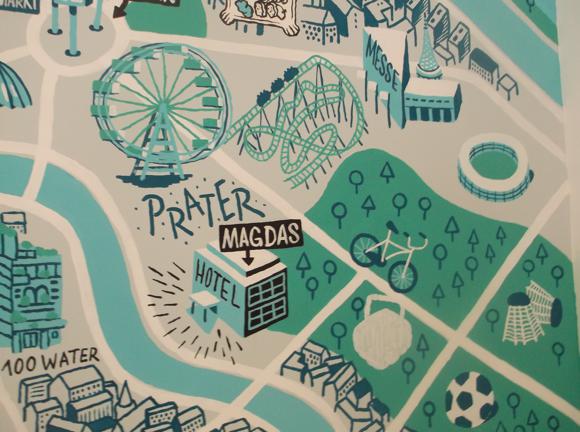

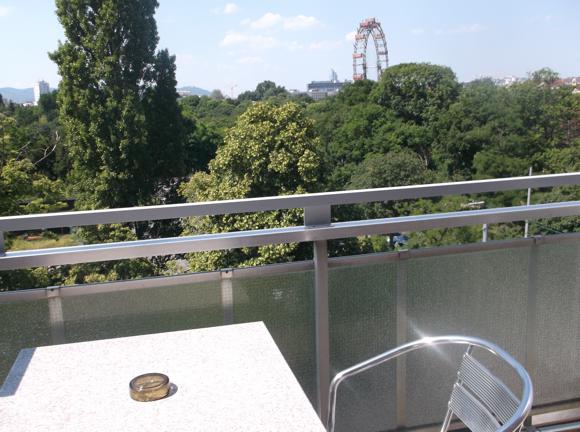

The Vienna Tourist Office has a booking service.
Near the Ernst-Happel-Stadion, the BASSENA Wien Messe Prater caters to nearby trade fairs. Similarly business-oriented are the Courtyard Vienna Prater/Messe and, on other side of Stadion U-Bahn by the river, the Hilton Vienna Danube Waterfront.
Still close to the Prater Park and less conventional than these standard chains, magdas is the first hotel run by refugees and asylum seekers, a funky, budget-friendly lodging created from an old people’s home, and not 15 minutes walk from the national stadium. Some rooms have balconies overlooking the park and big wheel.
A nearby, convenient cheapie is the Hotel Praterstern, albeit with tiny rooms, while the adjacent mid-range Classic Hotel Wien is pricier but roomier.
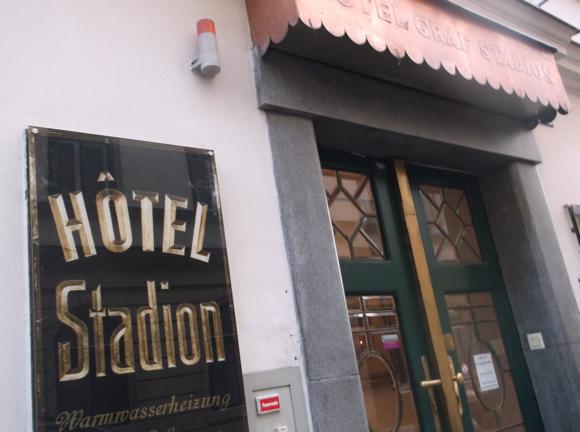
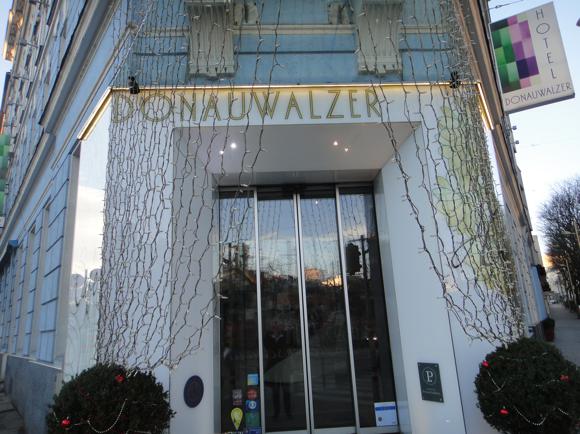


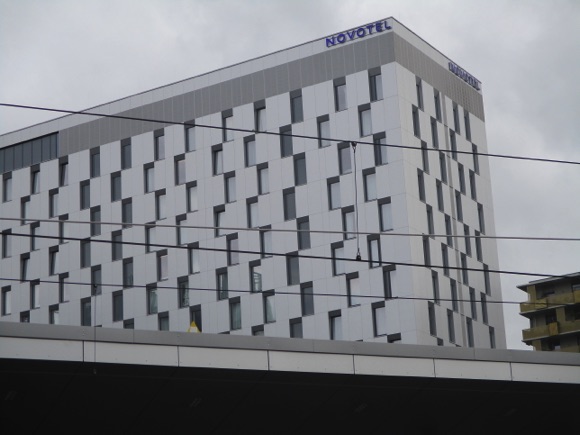
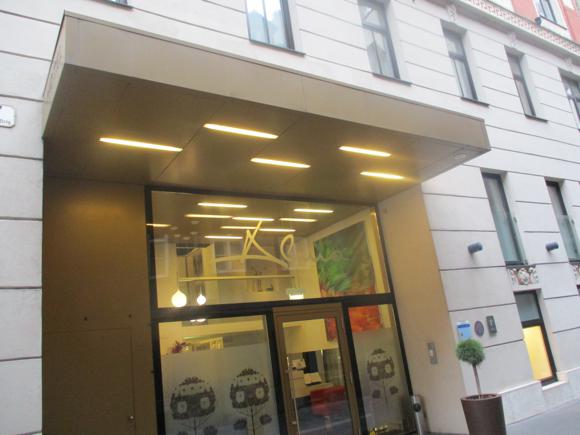
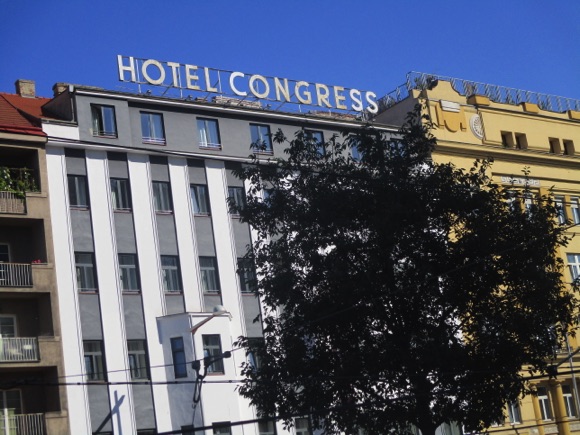
For a feel of old Vienna, the three-star Hôtel Graf Stadion is ideally located between the Rathaus and Josefstädter Straße. Near Westbahnhof, the Donauwalzer is a comfortable three-star with jacuzzi baths a stagger from a main bar hub.
To stay by the other, more tourist-oriented bar hub of the Bermuda Triangle near Schwedenplatz, the Mercure Wien Centrum is a comfortable, mid-range option with a handy restaurant, GO! Wien, while Alma Boutique Hotel adds a little four-star individuality.
Convenient for rail travellers and those heading to see Austria Vienna, the Novum Hotel Congress does a reliable job, while the equally handy Novotel Wien Hauptbahnhof caters to business visitors.
Where to shop
Shirts, kits, merchandise and gifts
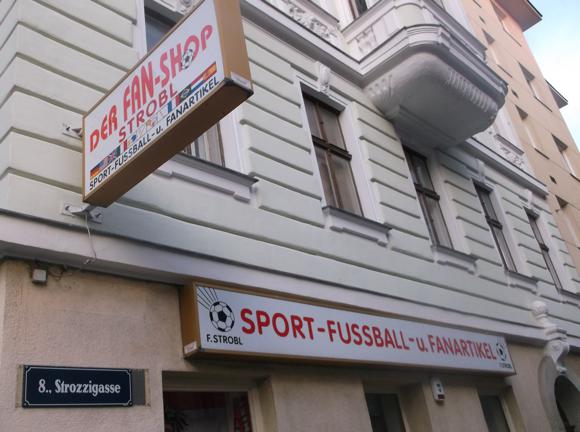
On Strozzigasse near the tram stop of the same name, the Fan-Shop Strobl sells shirs and souvenirs from many clubs, in an old-school store with the capricous opening times of Mon-Fri 10am-1pm, 2pm-6pm. Presumably at weekends, the owner is off catching a game somewhere.
Here’s where to come for Austria national tops home and away, including the goalkeeper’s jersey, plus sundry Rapid souvenirs. The focus on the green side of the city may indicate where the owner might be on his weekend jaunts.








